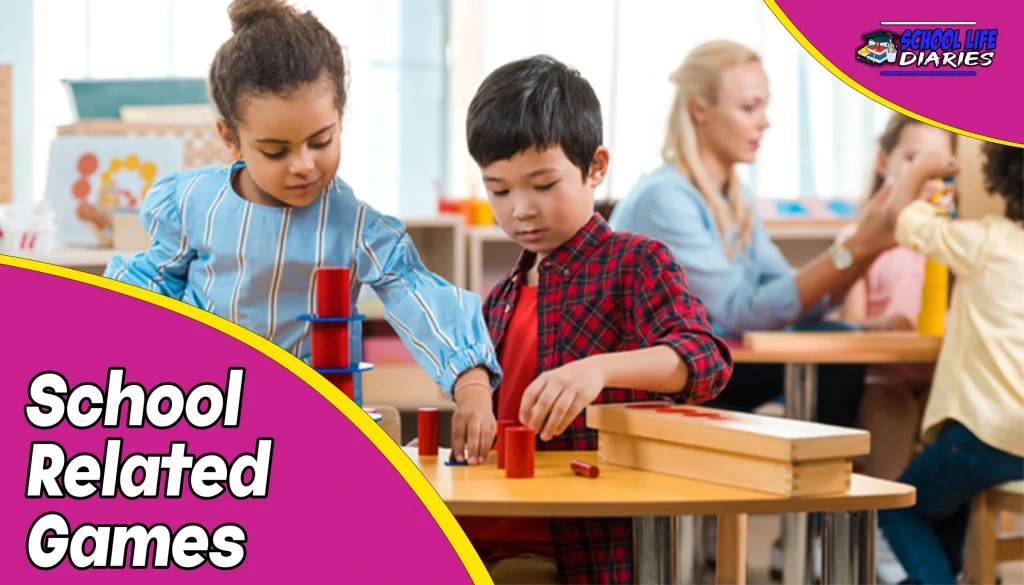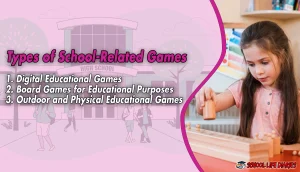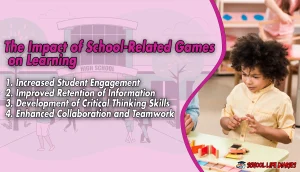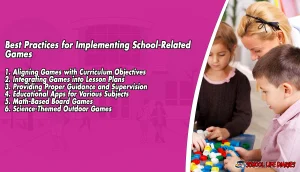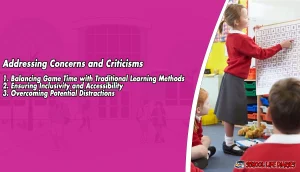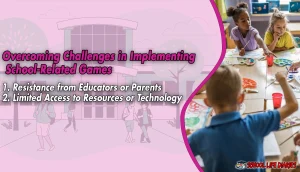In recent years, the education landscape has seen a transformation with the integration of technology and innovative teaching methods. One such approach gaining popularity is the incorporation of school-related games into the learning process. These games combine education and entertainment, making the classroom experience more engaging and enjoyable for students. In this article, we will explore the benefits of using educational games in schools and how they positively impact students’ learning journey.
Types of School-Related Games
Digital Educational Games
The digital age has brought forth an array of educational games designed to cater to various subjects and age groups. These games are accessible on computers, tablets, and smartphones, making them convenient tools for both classroom and remote learning. From interactive quizzes to immersive virtual simulations, digital educational games offer a wide range of opportunities for students to grasp complex concepts in a fun and interactive manner.
Board Games for Educational Purposes
While digital games have their place, traditional board games also hold tremendous educational value. Games like Scrabble, Monopoly, and Settlers of Catan can be adapted to suit educational objectives. They promote critical thinking, problem-solving, and strategic planning, making learning enjoyable and effective.
Outdoor and Physical Educational Games
Not all educational games are confined to the digital or indoor realm. Outdoor games like scavenger hunts, geography-based games, and science experiments can take learning beyond the walls of the classroom. These activities encourage exploration, teamwork, and hands-on learning experiences.
The Impact of School-Related Games on Learning
Educational games have shown remarkable results in enhancing the learning process and academic performance. Some of the key benefits include:
Increased Student Engagement
When students are actively engaged in the learning process, their attention and focus improve significantly. Educational games capture students’ interest, motivating them to participate and absorb information more effectively.
Improved Retention of Information
Retaining information can be a challenge, especially when faced with monotonous lectures. Games provide an immersive learning environment, allowing students to retain and recall information more efficiently.
Development of Critical Thinking Skills
Many educational games are designed to challenge students’ problem-solving abilities and critical thinking skills. Through these games, students learn to analyze situations, make decisions, and think critically to achieve objectives.
Enhanced Collaboration and Teamwork
Group-based educational games promote teamwork and collaboration among students. By working together towards a common goal, students learn to communicate, delegate tasks, and respect each other’s contributions.
Best Practices for Implementing School-Related Games
To maximize the benefits of school-related games, educators must follow certain best practices:
Aligning Games with Curriculum Objectives
Educational games should complement and reinforce the curriculum. Aligning games with specific learning objectives ensures that they contribute meaningfully to students’ academic growth.
Integrating Games into Lesson Plans
Games should be an integral part of the lesson plans, seamlessly woven into the learning process. This integration helps strike a balance between traditional teaching methods and game-based learning.
Providing Proper Guidance and Supervision
While games are meant to be enjoyable, they should also be supervised by teachers to maintain focus and ensure that the educational objectives are met. Proper guidance helps students stay on track and learn effectively.
Educational Apps for Various Subjects
The digital era has given rise to a plethora of educational apps tailored to different subjects. Apps like Duolingo for language learning, Khan Academy for mathematics and science, and Anki for flashcard-based revision have gained popularity due to their effectiveness in making learning enjoyable and interactive.
Math-Based Board Games
Mathematics can be a challenging subject for many students. However, math-based board games like “Math Bingo,” “Fraction Puzzles,” and “Geometry Race” turn learning into a thrilling adventure, making students more confident and proficient in their math skills.
Science-Themed Outdoor Games
Outdoor science games provide students with hands-on experiences and a deeper understanding of scientific concepts. Activities like creating erupting volcanoes, studying wildlife in their natural habitat, and conducting experiments outdoors make science come alive for students.
Addressing Concerns and Criticisms
Despite the numerous benefits of school-related games, there are some concerns that educators and parents may have:
Balancing Game Time with Traditional Learning Methods
While games can enhance the learning experience, striking a balance between game time and traditional teaching methods is crucial. It is essential to ensure that students do not become overly reliant on games and continue to engage with other learning resources.
Ensuring Inclusivity and Accessibility
Educational games should be designed to accommodate diverse learning styles and abilities. Developers must consider inclusivity and accessibility features to ensure that all students can participate and benefit from these games.
Overcoming Potential Distractions
Games, especially digital ones, have the potential to become distracting if not used mindfully. It is important for educators to establish clear guidelines and boundaries to prevent games from hindering the learning process.
Overcoming Challenges in Implementing School-Related Games
The integration of educational games may encounter challenges, including:
Resistance from Educators or Parents
Some educators and parents may be skeptical about the benefits of game-based learning. Addressing their concerns and showcasing successful examples can help alleviate resistance.
Limited Access to Resources or Technology
Not all schools may have access to the necessary resources or technology required for implementing digital educational games. Identifying alternative options and adapting games to fit available resources can be a solution.
The Future of School-Related Games
As technology continues to advance, the future of educational games looks promising. With virtual reality, augmented reality, and artificial intelligence, game-based learning is expected to become more immersive, interactive, and personalized.
FAQs
Q: Are school-related games suitable for all age groups?
A: Yes, educational games can be tailored to suit different age groups and academic levels, making them suitable for all students.
Q: How can educators incorporate games into the curriculum effectively?
A: Educators can align games with specific learning objectives, integrate them into lesson plans, and provide proper guidance and supervision.
Q: Can games replace traditional teaching methods entirely?
A: While games are valuable additions to the learning process, a balanced approach that incorporates various teaching methods is ideal.
Q: Are there any studies on the long-term effects of using educational games?
A: Yes, there are studies that demonstrate the sustained positive impact of game-based learning on students’ academic performance.
Q: Where can I find educational games for specific subjects?
A: There are various websites, app stores, and educational platforms that offer a wide range of educational games for different subjects.
Conclusion
School-related games have emerged as valuable tools in enhancing education through play. By engaging students in interactive and enjoyable ways, these games foster better retention of information, critical thinking skills, and collaboration. As technology evolves, so does the potential of educational games in transforming the learning experience.

